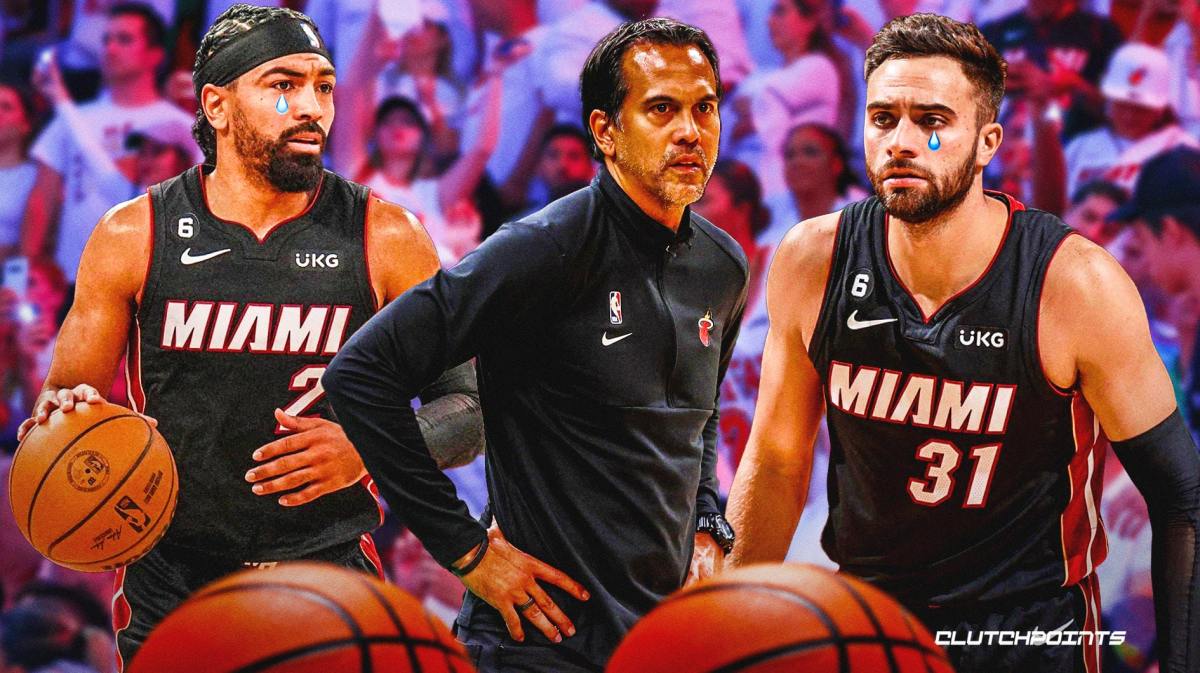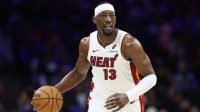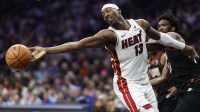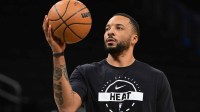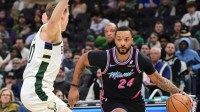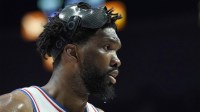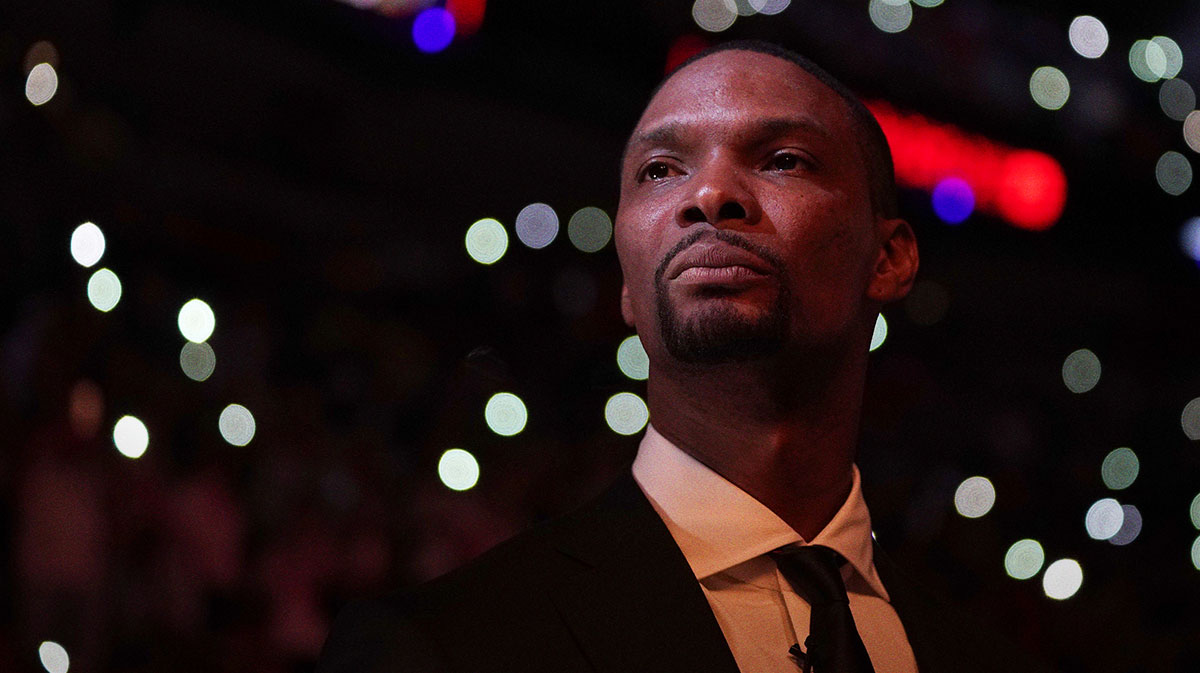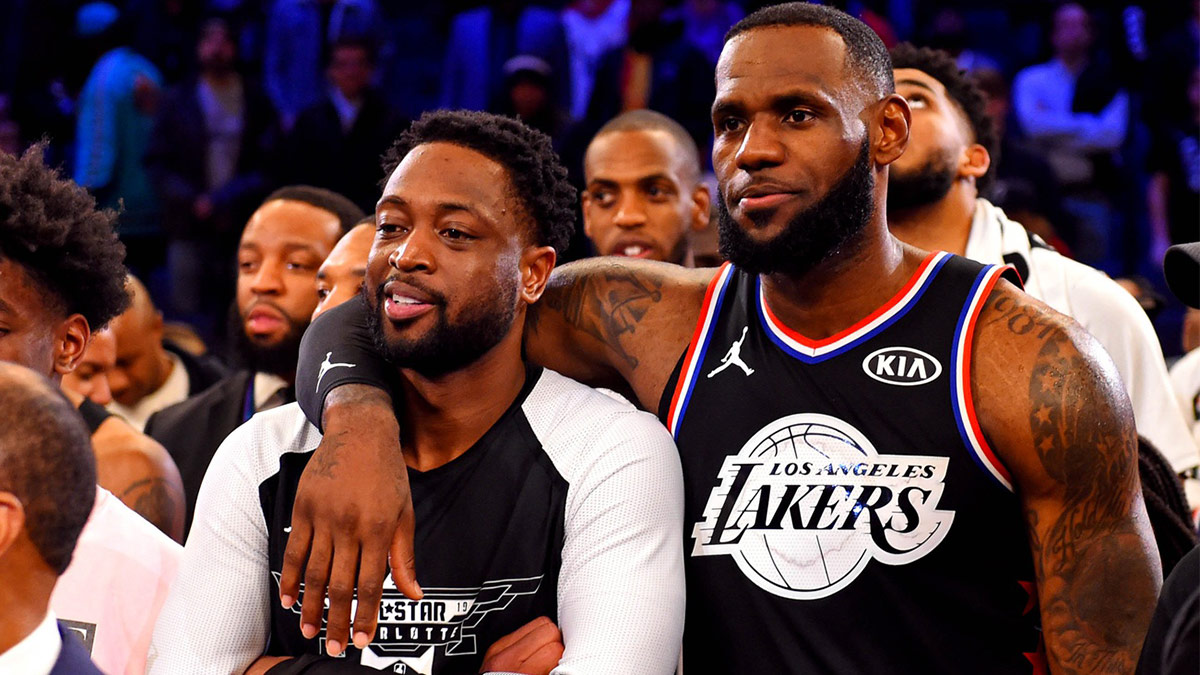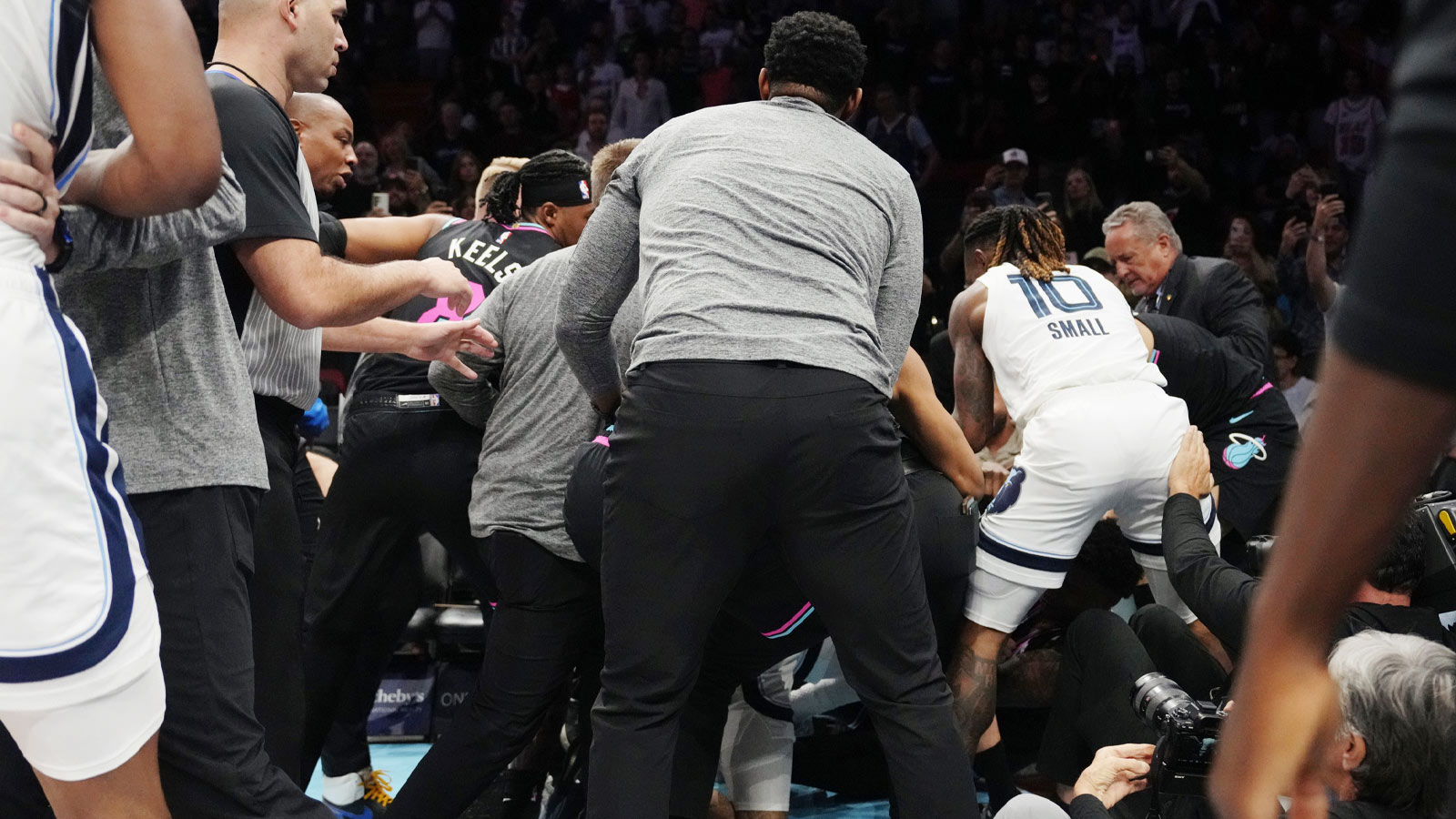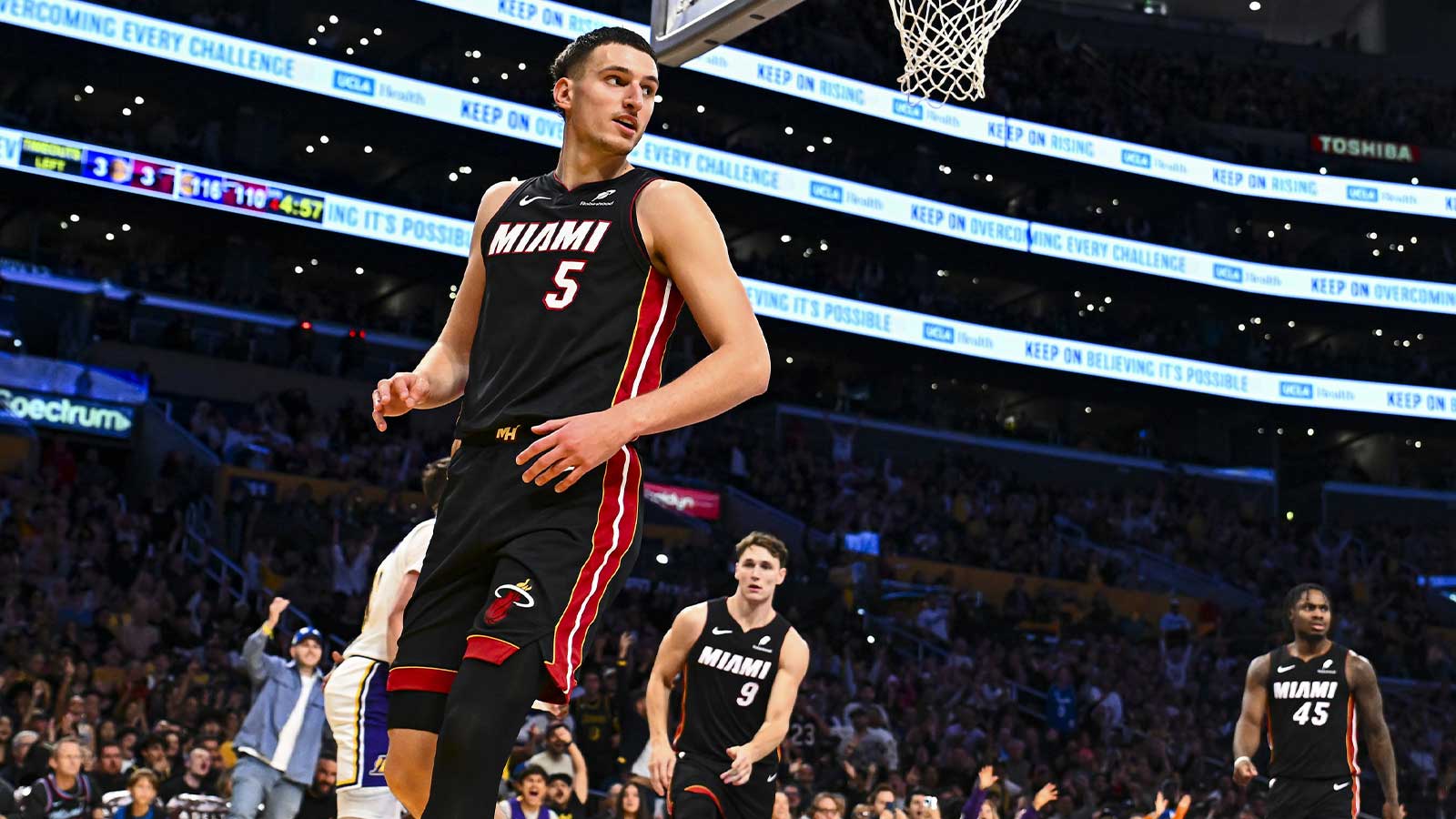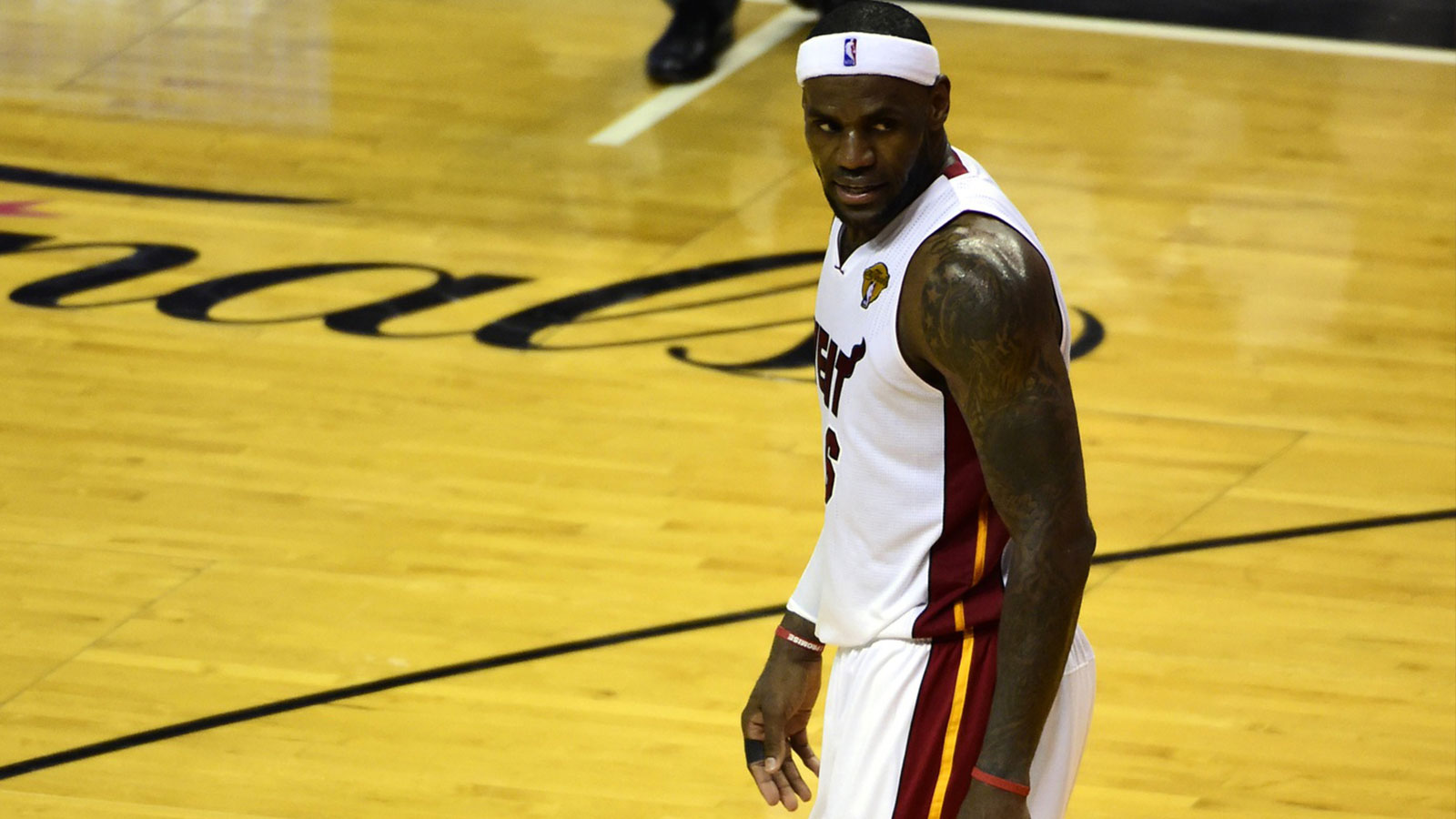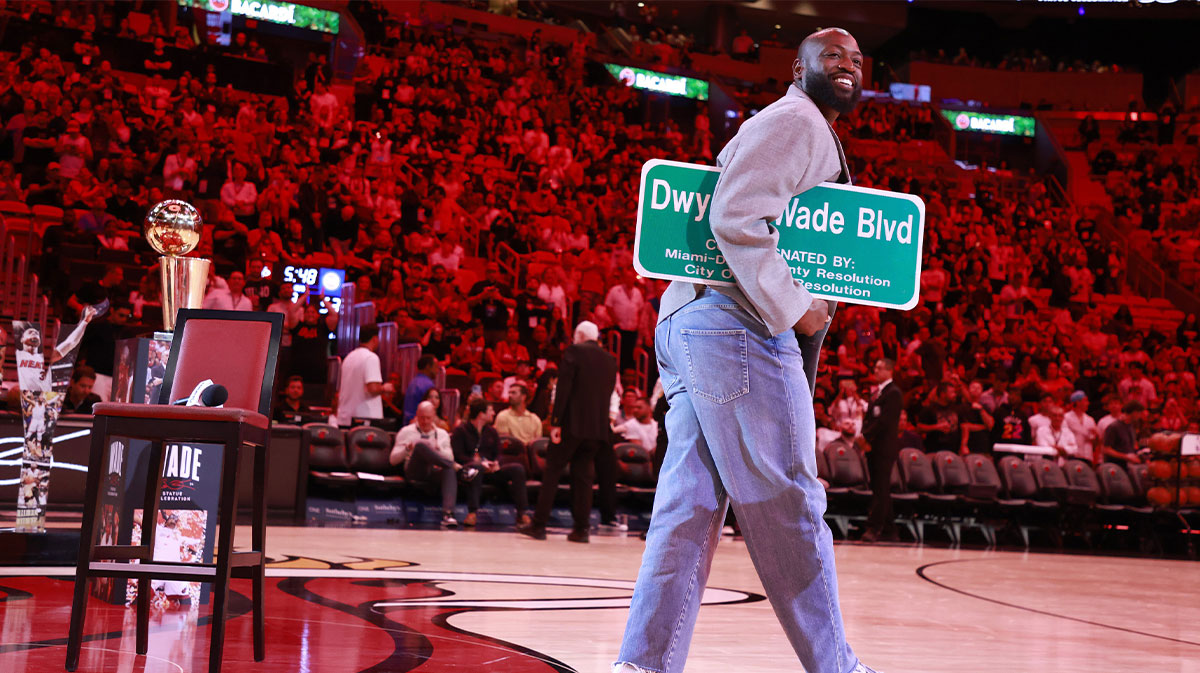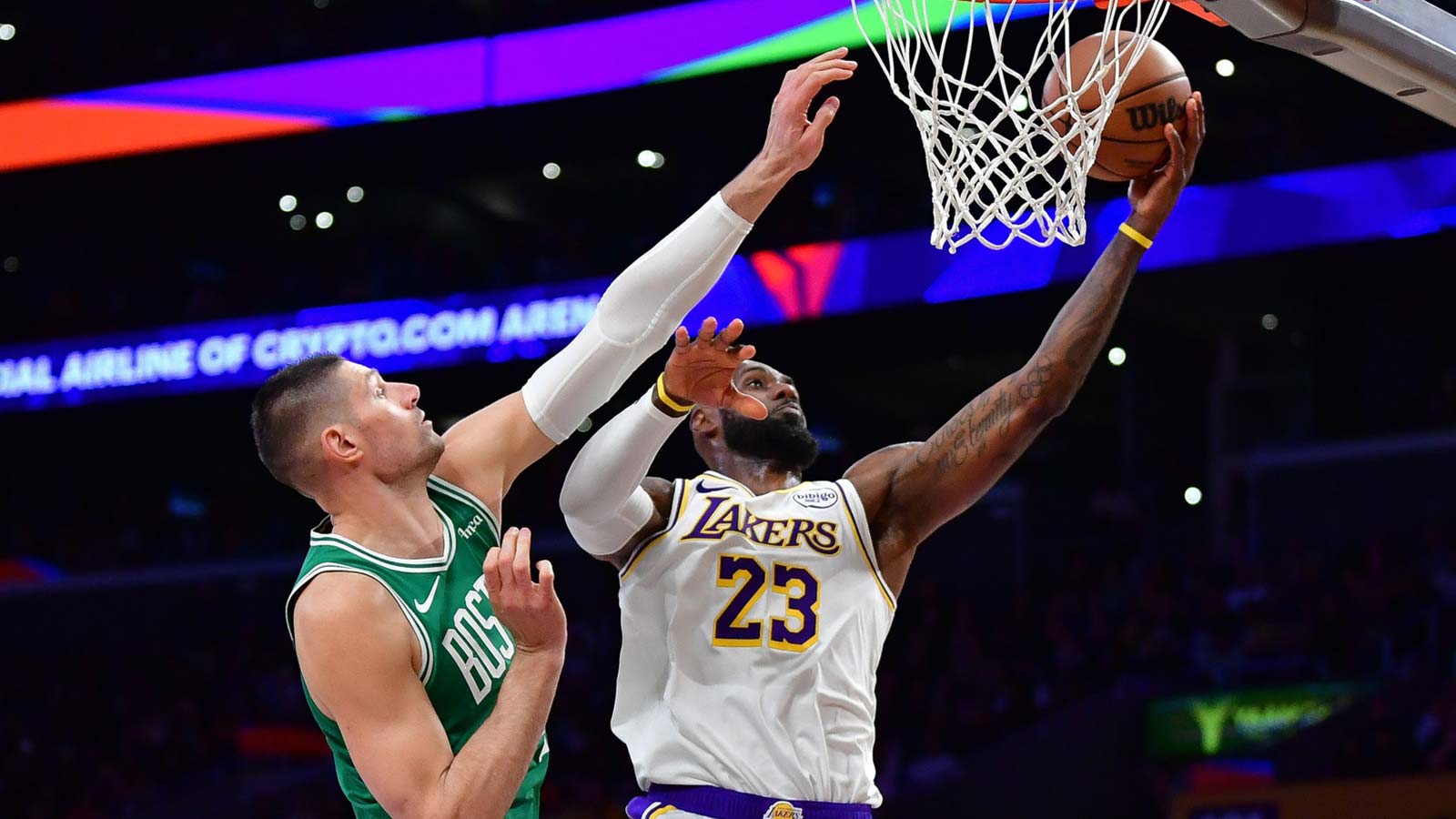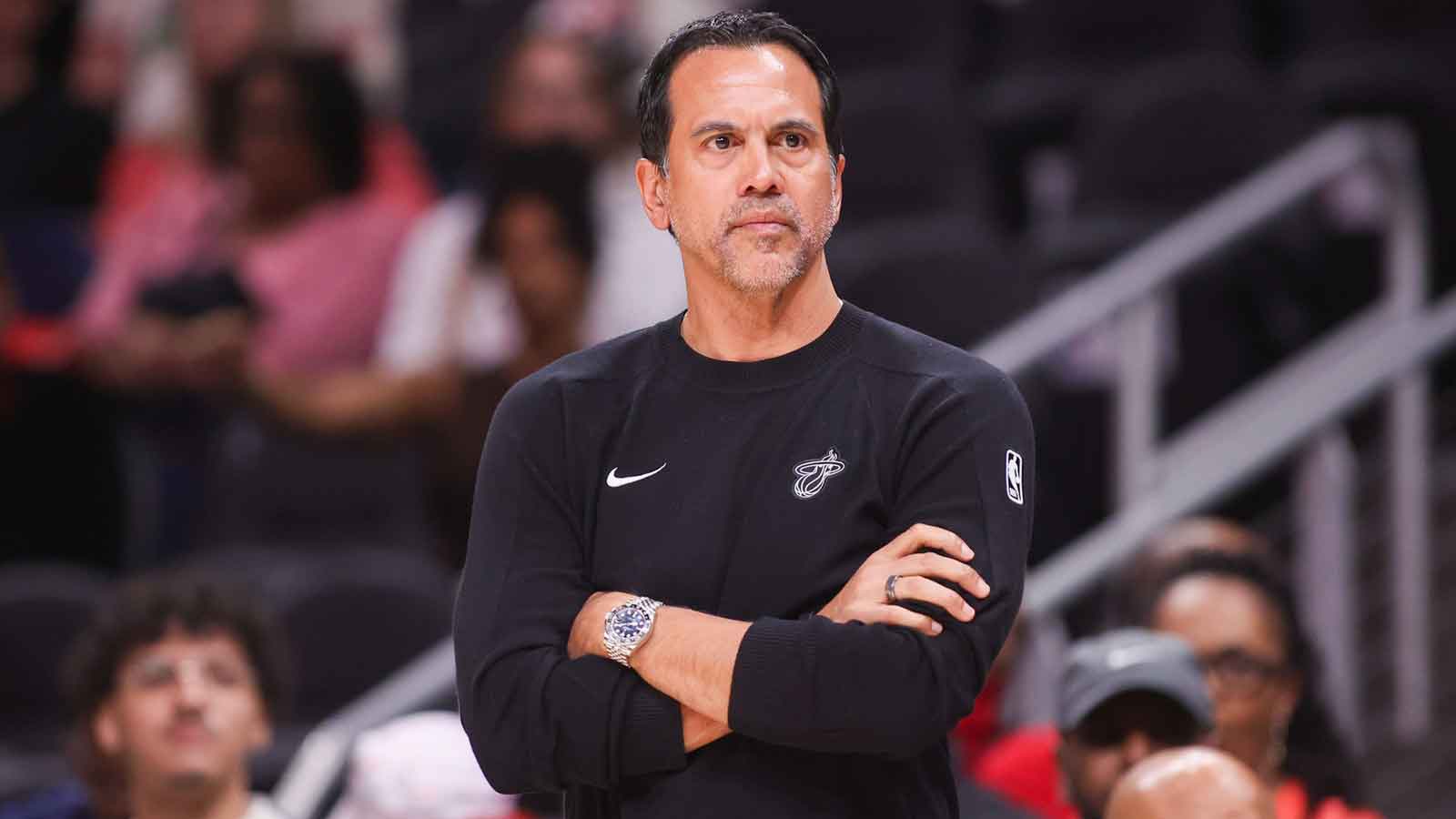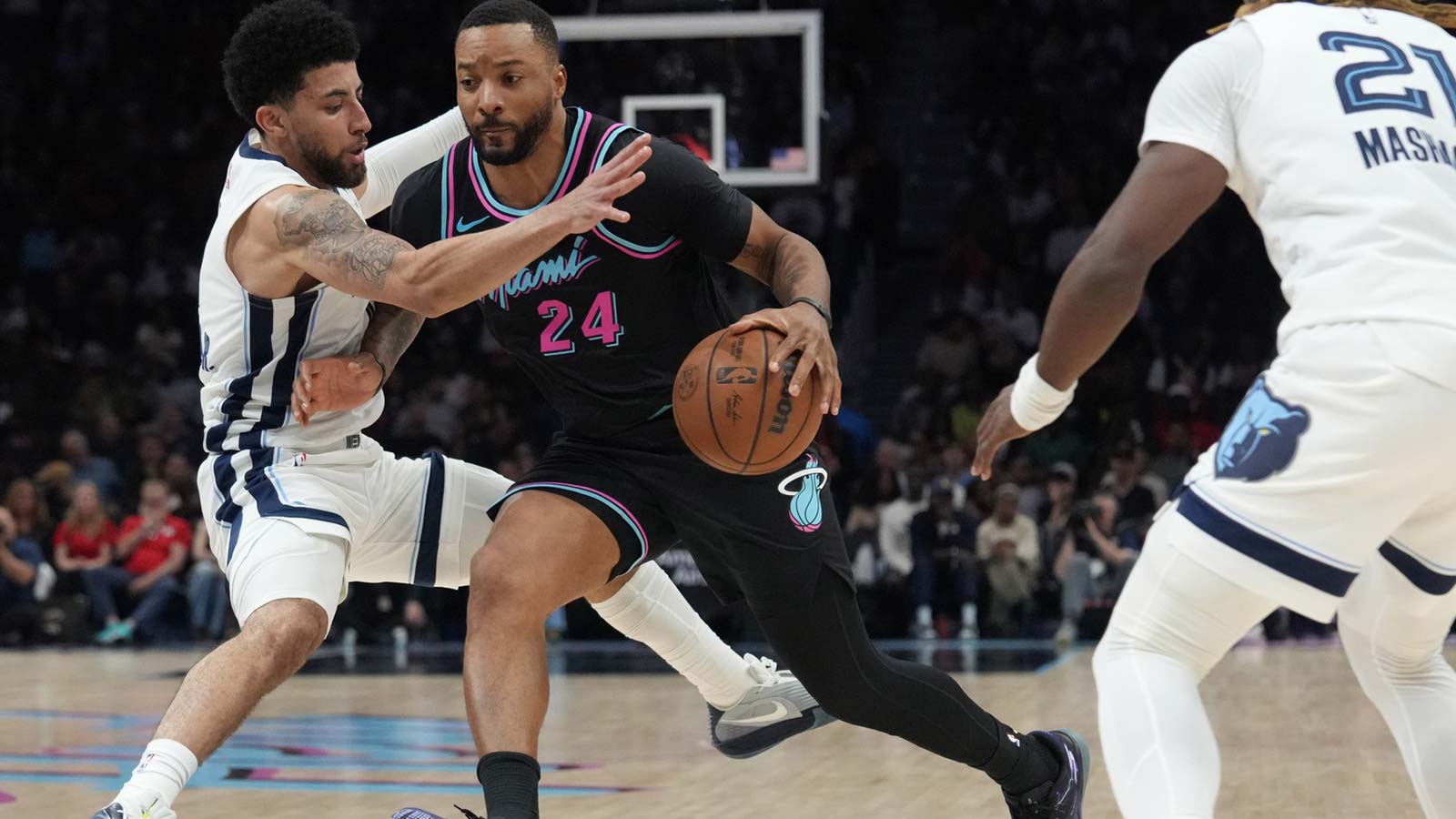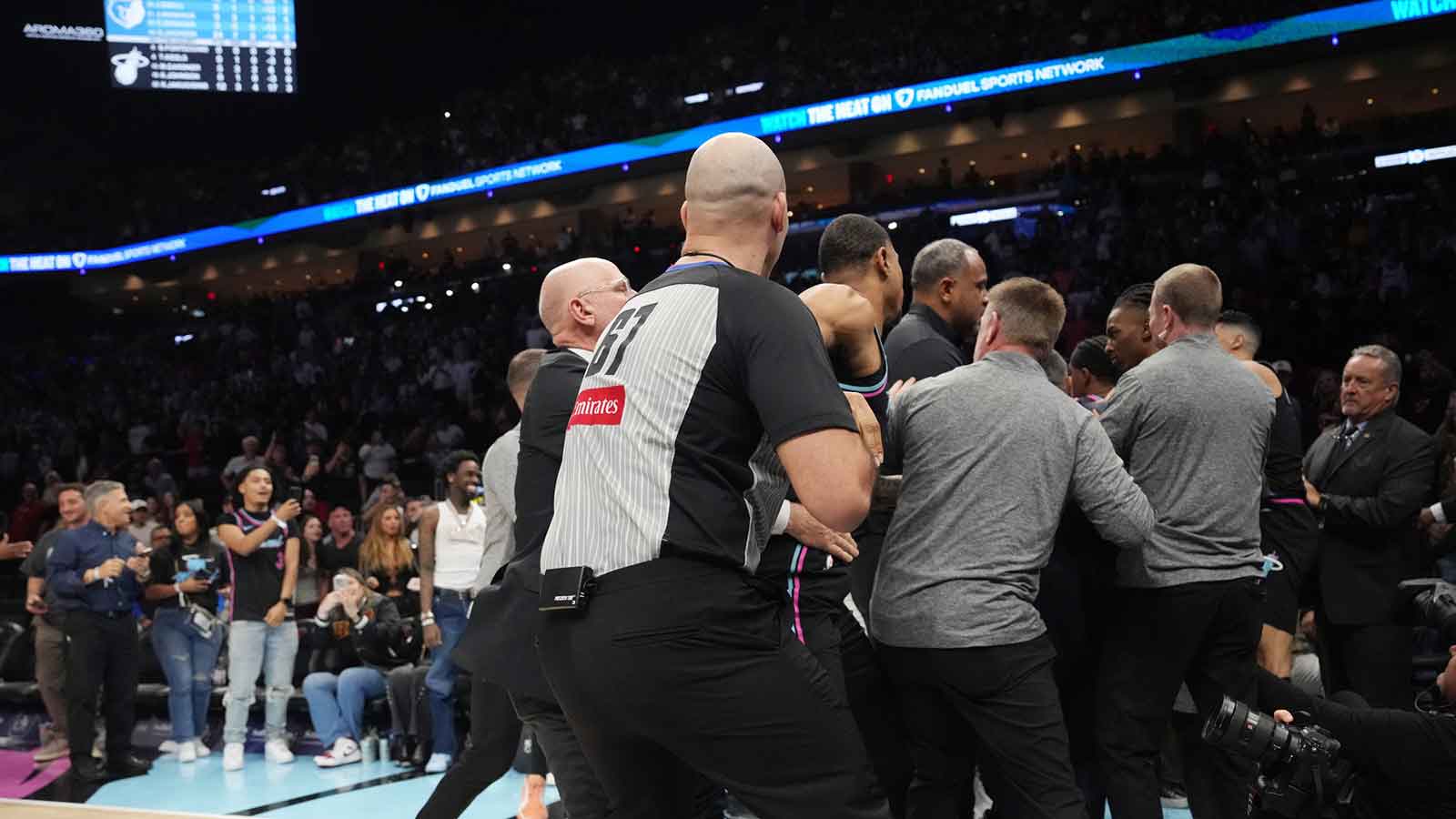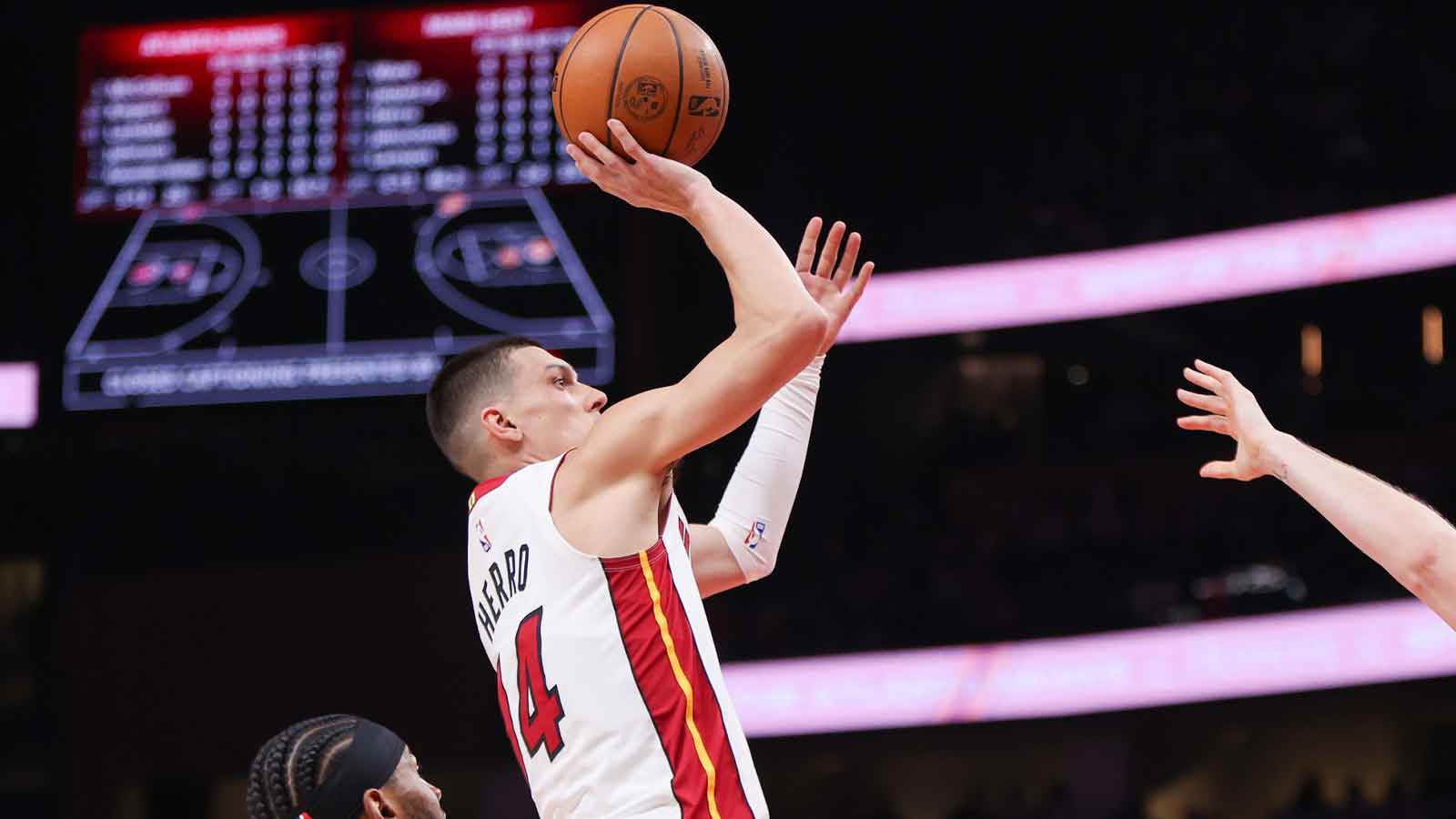The Miami Heat's quest for NBA championship glory hit a roadblock in Game 3 of the 2023 NBA Finals against the Denver Nuggets. A disappointing 109-94 loss not only handed the Nuggets a 2-1 series lead but also exposed some critical weaknesses within the Heat roster. In this article, we will delve into the Miami Heat personnel who played a significant role in their team's defeat. We will try to analyze their performance and contributions during the game. Let's explore the factors that contributed to this Game 3 setback and those who bore the brunt of the blame.
1. Max Strus
Among the players who failed to deliver, Max Strus had a particularly disappointing performance in Game 3 of the NBA Finals. After an impressive display in Game 2 where he showcased his shooting prowess, Strus struggled to find his rhythm in the crucial matchup against the Nuggets. Throughout the game, he managed to connect on just a single 3-pointer. That's a far cry from his usual accuracy. Shooting at an abysmal 14 percent from the field, his off night had a profound impact on the team's offensive flow and momentum. He made efforts to contribute in other areas of the game, including grabbing four rebounds and dishing out five assists. Still, Strus couldn't compensate for his lackluster shooting. This severely disrupted the team's offensive rhythm and hindered their ability to keep pace with the Nuggets' scoring output.
2. Gabe Vincent
Gabe Vincent had emerged as a standout performer for the Heat in the series leading up to Game 3. However, he faced an uncharacteristically challenging outing when his team needed him the most. Known for his ability to make timely shots and provide an offensive spark off the bench, Vincent struggled to find his shooting stroke in this crucial matchup. Limited to just seven points, Vincent encountered difficulties converting his shot attempts and faced early foul trouble. He collected three fouls in the first half alone. These setbacks not only restricted his playing time but also disrupted his rhythm and confidence on the court. Keep in mind that the Heat heavily rely on Vincent's scoring prowess. As such, his subpar performance in Game 3 dealt a significant blow to the team's offensive firepower. It exacerbated their struggles and made it even more challenging to keep up with the Nuggets' relentless attack.
3. Jimmy Butler
"Jimmy Butler failed the Miami Heat."
😳 @RealJayWilliams pic.twitter.com/JRjELf7qXg
— Get Up (@GetUpESPN) June 8, 2023
Yes, Jimmy Butler managed to showcase his best performance of the series in Game 3. In fact, he recorded an impressive 28 points and shot 45 percent from the field. Despite that, the lackluster contributions from his supporting cast significantly limited his overall impact. The Heat heavily rely on the collective effort and contributions of their team to secure victories, and in Game 3, the lack of support from his teammates presented a formidable challenge for Butler to overcome.
Despite his remarkable offensive performance, he also had some defensive deficiencies. These allowed Jamal Murray to torch Miami with 34 points on 12-of-22 field goal shooting. Butler's good offense won't matter much if he cannot stop Murray from scoring even more.
4. Coaching Staff
The Heat's coaching staff faced criticism for their decisions and player management throughout Game 3. While some reserves had previously made notable impacts in earlier games, their contributions dwindled in this crucial matchup. One decision that raised eyebrows among fans and pundits alike was the reduced playing time for Haywood Highsmith. Recall that he had delivered a strong performance in Game 1. Many questioned the reasoning behind the limited minutes allocated to Highsmith, as his presence and skill set could have potentially made a difference in Game 3.
Such adjustments made by the coaching staff undoubtedly played a part in the diminished output from the Heat's bench. The team heavily relies on the depth and versatility of their roster. This means that strategic decisions regarding player rotations can significantly impact the team's overall performance. In Game 3, the coaching staff's choices, including the allocation of minutes and rotations, came under scrutiny. They appeared to disrupt the team's rhythm and hinder their ability to counter the Nuggets' offensive onslaught effectively.
Looking Ahead
The Heat's offensive struggles were also glaringly apparent in Game 3. As a team, they shot a dismal 37 percent from the field. Their inability to find consistent scoring opportunities and convert their shot attempts significantly hindered their chances of securing a victory. Additionally, their defensive performance faltered. They allowed the Nuggets to score an alarming 60 points in the paint. The Heat's inefficiency on both ends of the court proved detrimental to their overall chances of coming out on top. They were just unable to keep pace with the Nuggets' scoring output and failed to stifle their opponent's offensive onslaught. Addressing these issues and making necessary adjustments will be crucial for the Heat as they strive to bounce back in the remainder of the NBA Finals series.
As the Denver Nuggets secured a pivotal Game 3 victory, the Miami Heat found themselves grappling with deficiencies in their lineup. The poor shooting and defensive struggles, coupled with underwhelming performances from Max Strus and Gabe Vincent, hindered the Heat's chances of taking control of the game. Despite Jimmy Butler's commendable offensive efforts, the lack of support from his teammates left him with an insurmountable task. The coaching staff's decisions further compounded the team's struggles. With the series now standing at 2-1 in favor of the Nuggets, the Heat must regroup. They obviously have to address these issues and rally together to bounce back in the remaining games of the NBA Finals. Only then can they hope to reclaim the championship aspirations that brought them to this point in the first place.

